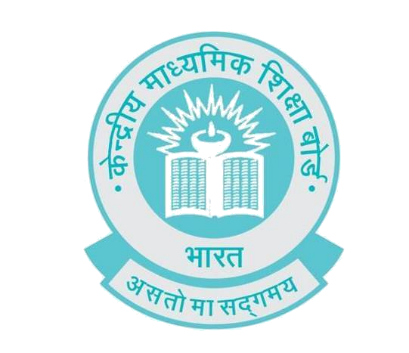Education in 2018
Education in 2018
 The year 2018 is almost coming to an end. This year has witnessed many twists and turns in the education space. From question paper leak to the introduction of a ‘no homework’ policy, from introduction of new technologies in teaching to addictive games, 2018 has been an eventful year in the field of education. Here are some highlights:
The year 2018 is almost coming to an end. This year has witnessed many twists and turns in the education space. From question paper leak to the introduction of a ‘no homework’ policy, from introduction of new technologies in teaching to addictive games, 2018 has been an eventful year in the field of education. Here are some highlights:1.Central Board of Secondary Education (CBSE)
CBSE was under the scanner for the question paper leak that took place during the class 10 and 12 board examinations. The mathematics paper for class 10 and the economics paper for class 12 were leaked and shared on social media. This resulted in nearly 28 lakh students reappearing for the exams. With whatever transpired, CBSE decided to re-approach its system of examination by encrypting the question papers and releasing them few minutes before the exam, as against having them reach the exam centre well ahead of time.
CBSE was in news for numerous other reasons as well:
-
The board made physical education mandatory for students of classes 9 to 12, in an attempt to create an awareness on physical fitness and health. A 150-page manual was issued by the board to affiliated schools, containing a list of activities for the students to take up. The board made it compulsory for teachers to also be actively involved in Health and Physical Education (HPE) by evaluating and recording the students’ involvement and participation.
-
CBSE asked schools in Kerala and Lakshadweep to include art, culture and creativity in its curriculum, to ensure holistic development. The schools were asked to stream videos on their official websites, on themes like patriotism, humanity, empathy, compassion, etc.
-
Tech giant, Google teamed up with CBSE to display the board exam results, making it hassle-free for the students.
-
The Board put forth a proposal to have two separate mathematics examinations, one easy and one tough, for students of class 9 to 12, to help those who do not intend to pursue mathematics get rid of the title of being weak in the subject.
-
CBSE has teamed up with Microsoft to address the issue of question paper leaks, by using authentication like password/biometric/Aadhaar, to access the papers 30 minutes prior to the exam.
-
Taking a cue from competitive examinations like Joint Entrance Examination (JEE) and Common Admission Test (CAT), CBSE has decided not to allow the board examinees to enter the hall beyond the reporting time.
-
CBSE has also planned to change the board examination pattern for class 10 and 12, from 2020. The new exam pattern will focus on the analytical ability of the students.
-
The Board brought in certain exemptions to accommodate differently-abled children like flexibility in choosing subjects, having a computer-based exam, relaxation in attendance and waiving registration fee for class 10 and 12.
-
CBSE brought in certain changes to its bye-laws, to make application processing easier and teacher training mandatory
2.National Council of Educational Research and Training (NCERT)
 NCERT was in the news for bringing about certain policies and changes in education.
NCERT was in the news for bringing about certain policies and changes in education.-
NCERT listed child protection portals in the textbooks to address child abuse. It also introduced QR codes in textbooks to provide access to additional reading materials.
-
The Council brought in a ‘No Homework’ policy which stated that no homework should be given to students up to class 2, homework of two hours a week should be given to students in class 3 to 5. This move was introduced to ensure that students are not overburdened with homework. The ‘No Homework’ policy is based on the directives issued by the Ministry of Human Resource Development (MHRD), which also prescribed the weight limit of school bags for each class.
-
To encourage early learning and growth, NCERT introduced learning outcomes for pre-schoolers, to be implemented by the play schools.
-
The Council also issued cyber-safety guidelines to ensure safe, legal and ethical use of internet.
-
NCERT signed an agreement with Curtin University, Australia, to launch online training modules for teachers. The modules aim to reach the teachers in rural and other low-access areas as well.
3.Education in the states
 A few Indian states introduced certain new initiatives to make education accessible and available to all the children. Some of the initiatives include:
A few Indian states introduced certain new initiatives to make education accessible and available to all the children. Some of the initiatives include:-
The former chief minister of Karnataka, Siddaramaiah, announced free education up to post graduation for all the girls studying in government institutions. The government also laid the framework to introduce movement arts, a combination of contemporary dance forms and lessons on body matters and movements in schools.
-
Delhi government directed government and aided schools to set up book banks to collect books from students of the previous academic sessions, to ensure that second-hand books are readily available to the underprivileged. The government also planned to launch a ‘spoken English’ class for students of government schools, to enhance their language. A major highlight in Delhi was the introduction of ‘Happiness Curriculum’ to reduce anxiety, stress and depression among the students. The children from government schools will also be introduced to ‘cleanliness curriculum’.
-
Schools in Mumbai have introduced the concept of organ donation to students in classes 8 and 9, to create awareness for the cause. The Maharashtra State Education Department also launched the ‘Raksha Abhiyan’, an initiative against child sexual abuse in schools.
-
The Haryana Education Department launched an educational initiative to promote English in state primary schools. The initiative was launched to train and educate the teachers as well.
-
Goa became the first state in India to include road safety in its curriculum. The state will also be introducing Gandhi’s teachings to students between class 1 to 12, from 2019.
-
Odisha Government has decided to introduce robotics in select schools, to keep children in sync with the technology.
-
The Bihar government made it mandatory for all schools across the state to hold morning prayers.
-
Andhra Pradesh will be introducing foreign languages like Japanese, French and Spanish in government schools across the state.
-
Following the floods in Kerala, the government has made it mandatory for schools to have disaster management as a part of the curriculum. The State has also launched an Online Open Learning platform for teachers.
4.In other news…
 Technology has played a key role in 2018, with many new ideas being developed. Numerous studies were undertaken this year to understand what impacts education.
Technology has played a key role in 2018, with many new ideas being developed. Numerous studies were undertaken this year to understand what impacts education.-
The Oxford University Press stated ‘Plastic’ to be the word of the year.
-
A study conducted at the Illinois State University and the University of Michigan Medical school found a link between parents’ technology use and the child’s behaviour.
-
The American Medical Association found a link between smart devices and ADHD
-
Sonam Wangchuk, a Ladakhi inventor and engineer and Dr. Bharat Vatwani were awarded the Magsaysay Award, for their contribution to the field of education.
-
The France government passed a law banning the use of smartphones and other smart devices like tablets in schools.
-
The Ministry of Electronics and Information Technology issued guidelines to parents and teachers with regard to Momo Challenge, a game that lured children to share their personal information and encouraged them to perform certain cruel acts. The game resembled a Blue Whale challenge, with its tasks and threats.
-
The American Institutes for Research conducted a survey and found that children learn better when in groups.
-
Singapore, one of the top performers in education abolished the student ranking system for primary and secondary school children, to encourage learning.
-
Parents have been warned to keep a check on their child’s screen time, with the increase in users (especially children) playing PUBG (PlayerUnknown’s BattleGrounds), an online action game that has taken the internet by storm.
While 2018 has been a year with many initiatives and changes, 2019 promises to be even better, especially with many developments in the field of education and technology.





















